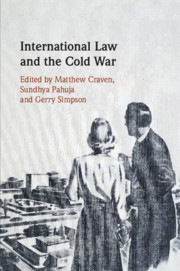Yugoslavia’s military internationalism was one of the most practical expressions of the country’s policy of nonalignment. Beginning with Algeria in the 1950s until its demise in the 1990s, Yugoslavia was an ardent supporter of liberation movements and revolutionary governments in Africa and Asia. This article argues that Yugoslav military internationalism was at the heart of Yugoslavia’s efforts to reshape the post-1945 global order and represented an extension of Yugoslav revolution abroad. Military aid was an expression of personal identification of Yugoslavia’s “greatest generation” with decolonization struggle. However, Yugoslav military aid to other countries went beyond a single foreign policy issue. Yugoslav military internationalism touched upon many other issues that included problems related to finances, economic development, the acquisition and transfer of military technology, relations with the superpowers, national security, ideology and politics, and prestige and status in global affairs. By the end of the 1970s, with the departure of the World War II generation and the looming economic crisis, Yugoslav military involvement in the Global South became increasingly driven by economic reasons. Former Yugoslav republics, after a short hiatus in the 1990s during the wars for Yugoslavia’s succession, are still present in the arms trade in the Global South.
